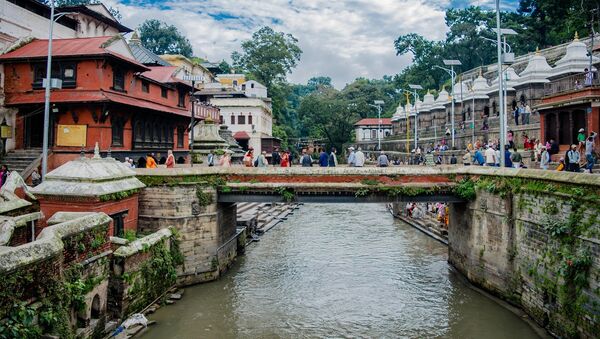Over two-and-a-half years after signing an Agreement on Transit and Transportation and following it up this year with an upgraded protocol, Kathmandu says it is still waiting for Beijing to allow Nepali business to do third-party trading via its sea and land ports.
Nepal will have access to four Chinese seaports; Tianjin, Shenzhen, Lianyungang and Zhanjiang, and three land ports; Lanzhou, Lhasa and Shigatse, once the 2016 Transit and Transportation Agreement is formalised.
Kathmandu says it is ready to implement the deal, but Beijing must also ratify it, Nepal daily Kathmandu Post quoted an official source as saying.
An upgraded protocol to the agreement was signed in April this year, but there is a clause that says Kathmandu and Beijing must inform each other about domestic laws in place for the pact to come into practice.
Chinese President Xi Jinping’s visit to Kathmandu on 12 and 13 October was was thought to see the formalisation of the the agreement, but the event did not occur.
Article 15 of the protocol says it can only come into effect a month after both sides notify each other officially.
“Diplomatic correspondence is often delayed,” a senior Nepal government official said.
In Beijing, a senior Nepal Embassy official told the Kathmandu Post that he was hoping to soon receive a Chinese response.
Officials involved in negotiations said the implementation of the agreement and its protocols are behind schedule and Nepali importers are being inconvenienced. There is a feeling among them, according to reports, that the Chinese are not interested enough to see the agreement become law.
The signing of the Transit and Transportation Agreement in 2016, during the visit of Nepalese Prime Minister K.P. Sharma Oli has been described as a “watershed moment” in Nepal’s diplomatic history, one that would end Nepal’s long-standing dependence on India for third-country trade.
After the agreement’s upgraded protocols were signed during Nepalese President Bidya Devi Bhandari’s visit to China in April, both countries said the treaty would come into effect once they informed each other about their internal laws and regulations in place to allow transit and transportation.
Nepal is awafre, according to reports, that it must improve its surface transport and dry port infrastructure to implement the deal.
Currently, Nepali transport containers are only allowed to travel up to Kerung, a village on the Nepal-China border, but once the upgraded bilateral transportation agreement is formalised, imported goods can be transported up to the Tibetan city of Xigaste (a.k.a. Shigatse), by train and Nepali containers will transport them from Xigaste to the Nepali border.




